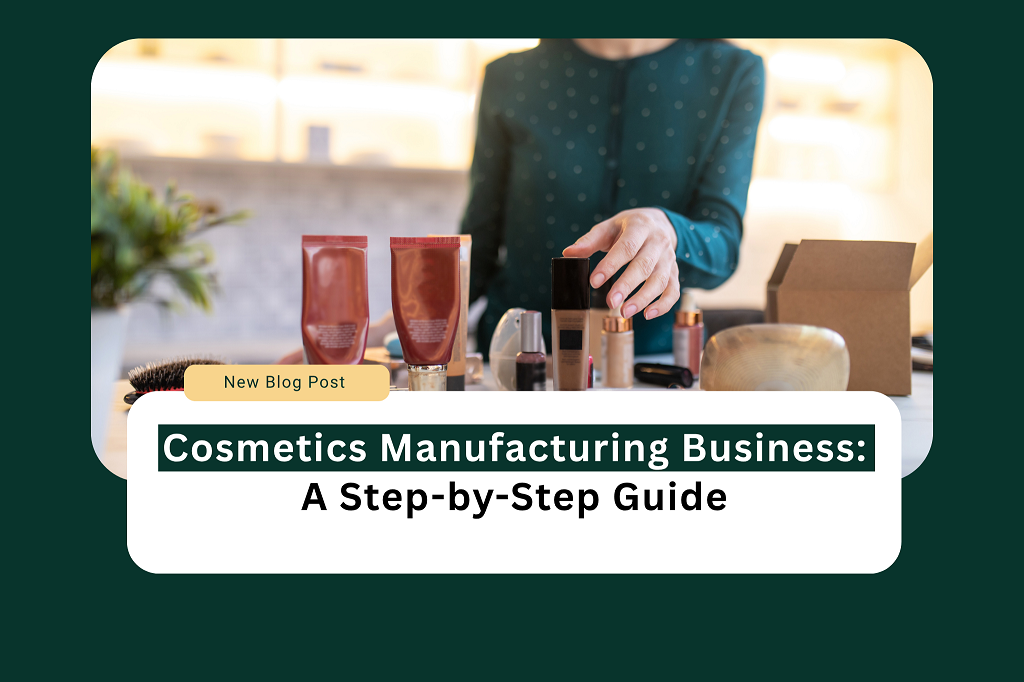Introduction
Do you wish to develop a product line of beauty items? Have you seen any openings in the existing cosmetics market that you believe you could successfully address? The cosmetics manufacturing industry continues to grow rapidly because the global market projection reaches $463.5 billion by 2027. This detailed guide provides all the necessary information to establish your cosmetics manufacturing business no matter what stage of experience you are in. Let’s transform your concept into a successful reality.
Market Analysis and Business Planning
A cosmetics manufacturing business needs complete market research activities alongside strategic planning procedures to succeed. The beauty industry maintains remarkable durability because it demonstrates a compound annual growth rate (CAGR) of 5.3% regardless of economic situation. Your business should focus on choosing a specific market segment between natural cosmetics luxury skincare and mass-market products.
Clean beauty product sales have surged by 23% in recent years based on Beauty Business Journal reports which demonstrates the significant market potential for natural sustainable cosmetic items. Create a focused business document with financial modeling connected to necessary machinery as well as space requirements for operation coupled with compliance specifications. It would be wiser to begin by manufacturing a particular product range instead of trying to create everything from the start.
Regulatory Compliance and Legal Requirements
The cosmetics industry operates under strict state and government bodies that establish safety regulations for consumers. To export products you must learn about FDA regulations in combination with Good Manufacturing Practices (GMP) and international standards. To start production you must acquire all essential licenses and certifications that include permits for manufacturing operations and safety evaluation outcomes. Quality control protocols together with documentation systems must be established. Initial investments in well-established compliance systems help businesses minimize their legal risks to 70% and produce substantial savings in potential remediation expenses.
Facility Setup and Equipment Investment
Your manufacturing site needs to fulfill all necessary cleaning and safety requirements. The expenses associated with setting up a small to medium-scale operation amount to between $200,000 and $500,000. The establishment requires clean facilities combined with mixing equipment filling machines and quality control laboratories. The implementation of automated equipment leads facilities towards higher production efficiency rates by 40% while reducing labor expenses by 25% say industry experts. Begin your business operations with basic equipment before expanding your selection when your company expands.
Raw Material Sourcing and Supply Chain Management
A dependable connection with suppliers stands as fundamental for maintaining uniform product quality. According to research data, companies source materials from verified suppliers to face 45% less quality problems. You should establish relationships with multiple suppliers to protect your supply of materials. Our company should develop inventory management systems that optimize stock levels and decrease waste. The market performance data shows that sustainable cosmetic brands have shown double the growth rate compared to conventional cosmetics brands.
Formula Development and Quality Control
The organization needs to hire expert chemists alongside quality control professionals. Cosmetics Business magazine reports that companies achieving success in cosmetics production dedicate between 15% to 20% of their budget to research and development activities. Your company should establish detailed testing standards that cover product stability assessments together with microbial assessments and safety evaluations for all products. The company should document its formulations while keeping precise records for each production batch. Your business should work with external testing facilities to handle specific laboratory procedures.
Marketing and Distribution Strategy
Your marketing approach needs to present your manufacturing strengths and product quality to potential customers. The combination of offering private label services with own-brand products leads to a 35% increase in revenue growth according to Beauty Packaging. Establish meaningful contacts with retailers alongside distributors as well as private label clients. Your company should use digital marketing platforms to promote its manufacturing excellence along with its exceptional quality standards. Your company should join industry trade shows to build connections among potential clients.
Operational Excellence and Cost Management
A business needs to install effective production scheduling and inventory management programs. Modern ERP systems help manufacturers decrease their operational costs by an average of 23% according to research. Businesses should track essential performance indicators (KPIs) which should measure production efficiency along with waste reduction metrics also having quality standards as part of the monitoring process. All business processes must have standard operating procedures (SOPs) developed for maintaining operational consistency and efficiency.
Sustainability and Innovation
Companies should embrace sustainable production methods to fulfill the increasing market demand for sustainable products. The research conducted by Grand View Research revealed that sustainable cosmetics manufacturers achieved 30% more growth in 2023 compared to other manufacturers. Your operations should buy eco-friendly packaging materials along with programs that reduce waste. The acquisition of organic cruelty-free and vegan certifications will create fresh market prospects for your business.
Conclusion
Success in cosmetics manufacturing depends on an accurate focus on quality products and regulation controls with operational efficiency. The maintenance of high-quality standards and updated industry knowledge allows you to maintain alignment with proposed consumer market changes. Cosmetics manufacturing businesses that implement strategic planning techniques together with execution methods will generate substantial profits and expand their market presence in this industry sector.
We’d love to hear your thoughts on the cosmetics manufacturing industry and any experiences you’d like to share. Please post your thoughts through the comment section and spread this guide to your professional colleagues who may benefit from it.
FAQs
How much capital do I require to start operating my cosmetics manufacturing firm?
Starting a small cosmetics manufacturing operation demands an initial capital of between $200,000 and $500,000 for facility construction, purchasing equipment, and creating the first product inventory. The necessary capital for launch depends on both business location and production capacity.
The FDA approval process for cosmetic products spans what duration?
The FDA does not need to approve cosmetics for market release, but facility registration with product registration requires two to three months to complete. The complete process of following all regulations requires between 3-6 months to complete.
Does a cosmetics manufacturing business require which certifications to begin operations?
A company needs GMP certification as well as relevant ISO certifications based on target markets. The process of obtaining these certificates requires between 6 and 8 months.
Is it possible to begin manufacturing operations from within your home environment?
Fulfilling professional cosmetics manufacturing needs a dedicated facility that must adhere to both FDA and GMP standards even though small-batch production could potentially work from home.
What number of products should I initially introduce to the market?
Specialists in the industry say that launching 3-5 core products within your main category should be your starting point before adding more products. Such an approach helps companies maintain higher product quality and test their market potential better.
Read More : https://theacechronicle.com/daycare-business-plan-success/









